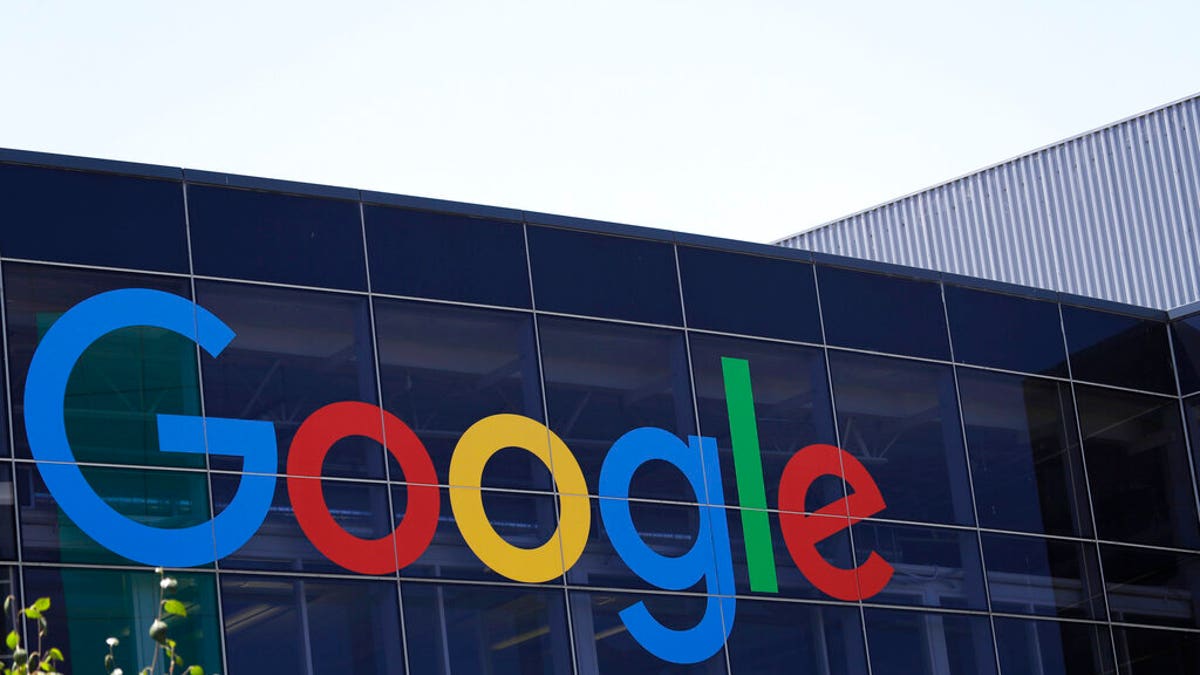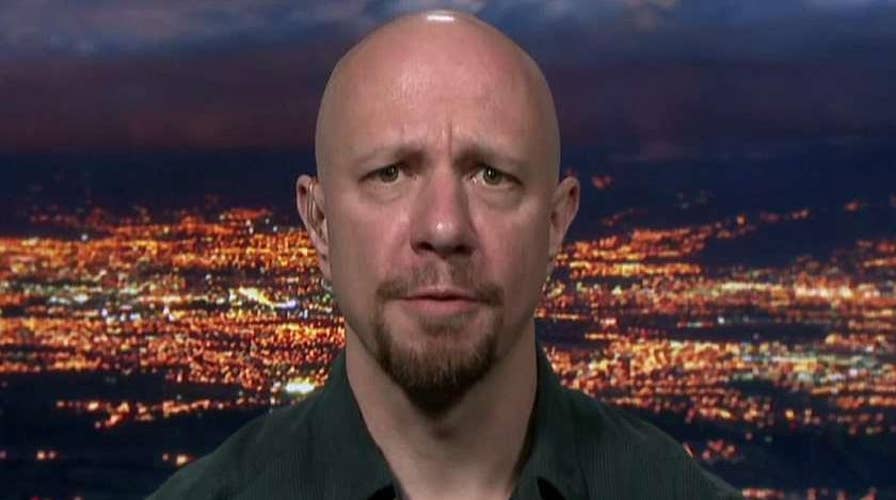Former Google engineer says search giant wants Trump to lose in 2020<br>
There is political bias at every level of the Google organization, says former Google employee Kevin Cernekee.<br>
A former Google engineer who claims he was fired for his conservative beliefs isn't the first person to accuse the Silicon Valley giant of having an office culture dominated by liberal politics.
In an interview with The Wall Street Journal, former engineer Kevin Cernekee accused the company of fostering an atmosphere of political bullying and said employees on the "two sides" of the political spectrum are treated very differently.
A Google spokesperson told Fox News that “We enforce our workplace policies without regard to political viewpoint," and made reference to the fact that Cernekee's firing was officially chalked up to misuse of company property.
GOOGLE EMPLOYEE'S VIRAL MEMO ALLEGES DISCRIMINATION AGAINST PREGNANT WOMEN: REPORT
This morning, President Trump chimed in, suggesting in a Tweet that the White House is "watching Google very closely" for political bias, particularly in the run-up to the election.
The Trump administration and Cernenke aren't the only people crying foul about Google's perceived political stance, and it seems the company still has a ways to go to refute some of these claims.
"TGIF" 2016
Just after the 2016 election, Google apparently held an all-hands meeting with staff during which executives, including CEO Sundar Pichai, offered consolation to staffers and suggested they were nervous about what a Trump administration could mean. Eventually, a video of that meeting, now known as the "TGIF" video, was leaked.
However, Google denied that the content of the discussion contained any implied political bias. “For over 20 years, everyone at Google has been able to freely express their opinions at these meetings,“ the company said in a statement to Buzzfeed. “Nothing was said at that meeting, or any other meeting, to suggest that any political bias ever influences the way we build or operate our products."
"IDEOLOGICAL ECHO CHAMBER" & JAMES DAMORE
In August 2017, Google fired engineer James Damore who had penned a memo accusing the company of being a liberal "ideological echo chamber."

James Damore, the engineer who was controversially fired from Google for penning the infamous "memo" on gender differences in the tech world.
Damore's memo suggested that the number of women in high-profile positions across Silicon Valley had to do with biological differences between the sexes. CEO Sundar Pichai reportedly sent a note to employees saying that Damore's memo violated the company’s Code of Conduct by advancing “harmful gender stereotypes.”
In response to the backlash, Damore wrote a follow-up to his screed and cited a "silent" coalition of supporters in Silicon Valley.
"Despite what the public response seems to have been, I’ve gotten many personal messages from fellow Googlers expressing their gratitude for bringing up these very important issues which they agree with but would never have the courage to say or defend because of our shaming culture and the possibility of being fired," he wrote. "This needs to change."
CLASS ACTION LAWSUIT AND DAVID GUDEMAN
Less than a year after his firing, Damore filed a class-action lawsuit against Google for allegedly discriminating against not just him, but white males in general. And this time, he was joined in the lawsuit by a second former Google engineer, David Gudeman.
In the lawsuit, attorneys for Damore and Gudeman argued that their clients and others were singled out and mistreated because of their “perceived conservative political views ... their male gender ... [and] their Caucasian race by Google.”
“Google employees and managers strongly preferred to hear the same orthodox opinions regurgitated repeatedly," the lawsuit continued, adding that it ultimately, created "a protected, distorted bubble of groupthink."
"We look forward to defending against Mr. Damore's lawsuit in court," a Google spokesman told Fox News at the time, via email.

FILE - This Tuesday, July 19, 2016, file photo shows the Google logo at the company's headquarters in Mountain View, Calif. (AP Photo/Marcio Jose Sanchez, File)
STEPHEN MCPHERSON AND MICHAEL BURNS
In April 2018, Gudeman and Damore were joined in their legal quest by two more men, Stephen McPherson and Michael Burns, who claimed they were discriminated against by Google during the application process. While Damore and Gudeman have since moved into arbitration, the case with McPherson and Burns is still very much alive.
The Google hopefuls claim that their status as conservative white men is what led to their ultimately being denied jobs for which they were being interviewed. The pair had been joined by another former Google employee at one point, Manuel Amador, but he has reportedly decided to drop his case.
McPherson claims he was in the final stages of the interview process when he was told he was being denied. The position for which he applied apparently remained open after his application was rejected.
Attorneys for Google tried to argue earlier this year that the lawsuit is based on the idea that a conservative white male is a protected "Political Subclass," which they deny. The company had officially told McPherson he was turned down for the position because he lacked unanimous support among the hiring team.
But Google's attempts to have the case thrown out on those grounds were dashed when, in early June, a California judge ruled that the case could move forward. "[I]t will be plaintiffs’ burden to show that certification of the Political Subclassis appropriate," Superior Court Judge Brian C. Walsh wrote. He added that he believes "this will not be an easy burden to satisfy; however, the pleadings do not establish that there is no reasonable possibility it can be met."
DISINVITED FROM CAPITOL HILL
In April, Google was disinvited from a Senate Judiciary subcommittee hearing titled "Stifling Free Speech: Technological Censorship and the Public Discourse" after lawmakers called into question the credentials of the executive Google had offered.
Public policy directors from both Facebook and Twitter testified at the hearing, but an empty chair was left where Google's representative would've sat. The company was apparently disinvited because of concerns that it hadn't offered a senior enough executive for the panel.
Subcommittee chair Senator Ted Cruz, (R-Tx.), said he would arrange a hearing for the future to tackle "Google's censorship of free speech."
“We work hard to fix our mistakes. But these mistakes have affected both parties and are not a product of bias.”
In July, Karan Bhatia, Vice President for Government Affairs and Public Policy at Google, testified before Cruz and others before the Senate Subcommittee on the Constitution.
He argued that Google works "hard to fix our mistakes,” and that “these mistakes have affected both parties and are not a product of bias.”
GREG COPPOLA
Another Google employee, Gregory Copploa, was also mentioned in last week's story from The Journal. Coppola was reportedly contacted by human resources just hours after expressing critical views of Google on conservative media outlets. A person "familiar with the matter" told The Journal that Coppola was put on administrative leave and denied access to internal systems.
A GoFundMe website, apparently set up by Coppola himself, seems to corroborate that he has been placed on leave. He is now planning on spending several months "publishing content about issues in politics and technology."

